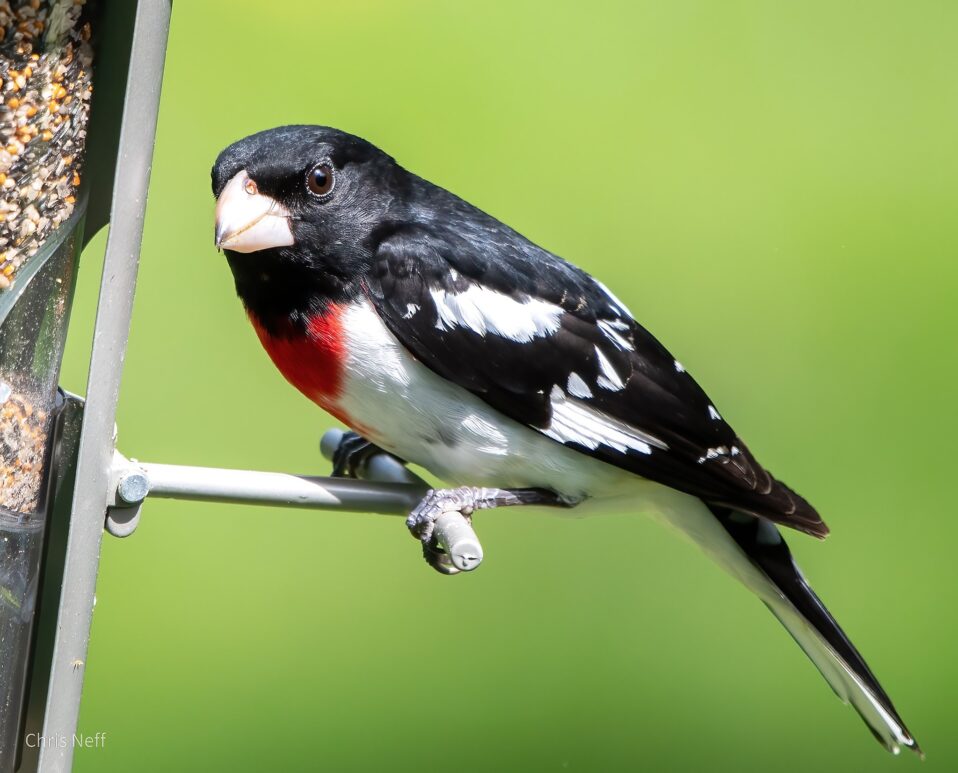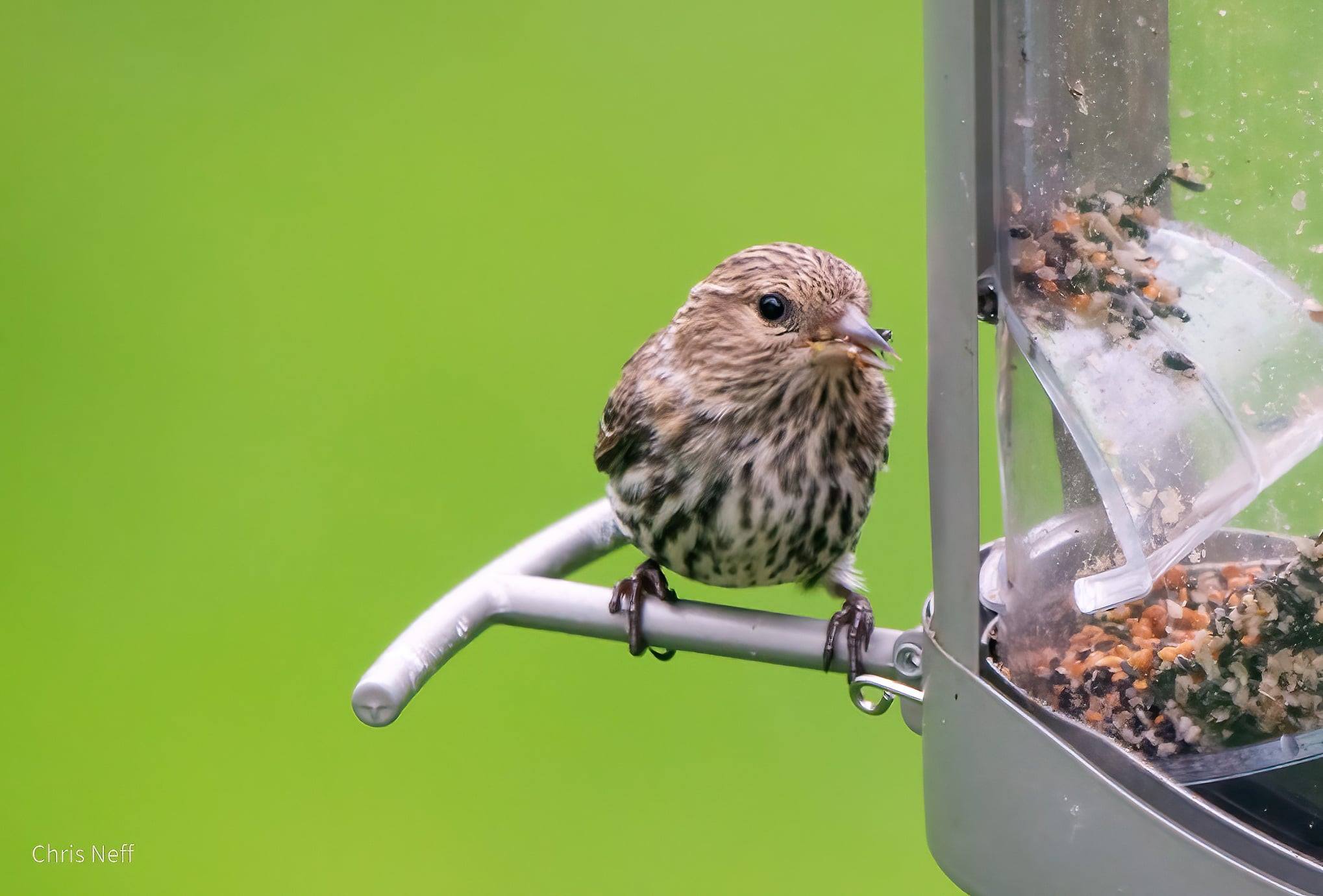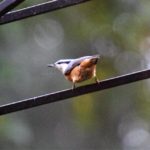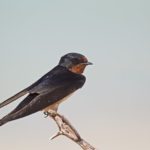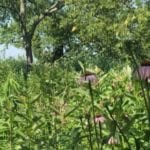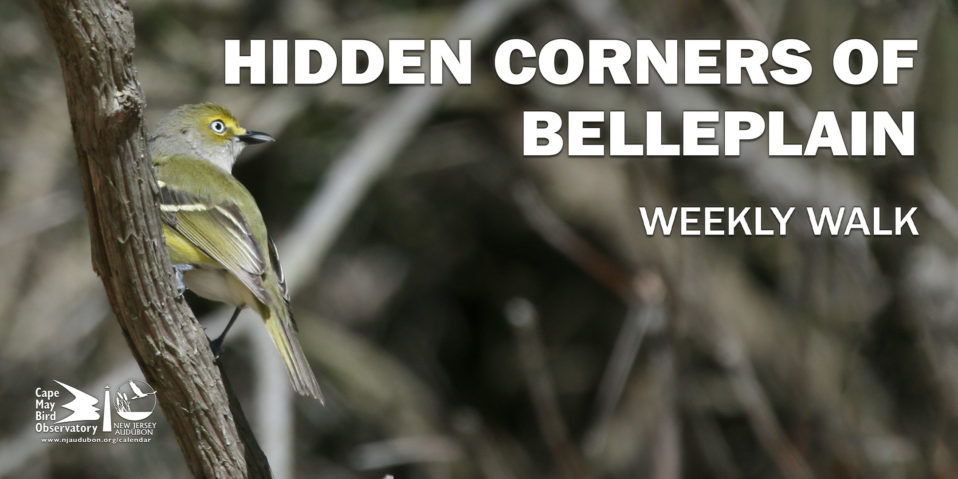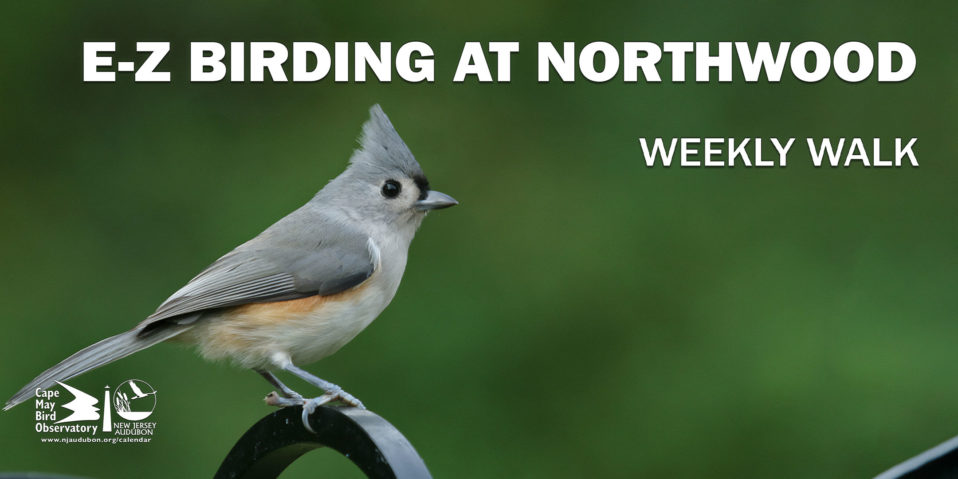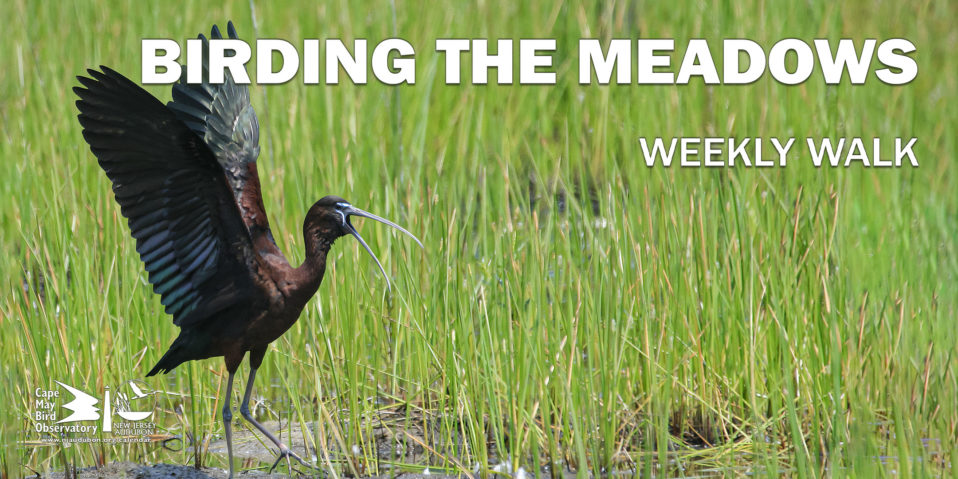Rose-breasted grosbeak – Chris Neff
Birds always prefer natural food sources. Feeders are a helpful supplement, especially during inclement weather. If birds can find what they need in their natural habitats, they don’t need to visit feeders nearly as often.
The abundance of natural food sources determines how much activity you will have in your yard. This is especially true for seed-eating species such as finches and sparrows.
Warm weather-which we’ve had more of in recent autumns and early winters-lowers the energy demand on birds and reduces the need to consume as many calories to keep warm. There has been a lack of snow and ice which has kept natural food uncovered and accessible. Even insects are out when we get temperatures in the 40’s or higher.
Some of our winter residents that are migratory (think of species like White-throated Sparrow or Dark-eyed Junco) can be flexible in their migration timing. They can adjust their arrival and departure based on abundance and/or access to food. Many species will linger as far north as they can, moving south a short distance as soon as necessary. If the winter is a short or mild one, many species will begin their journey north earlier.
Keep your feeders clean. Make sure your seed doesn’t spoil or have mold. Seed does go stale—if it hasn’t been touched in a month it’s time to toss it out and put fresh seed in your feeders.
We don’t want to downplay the significant population declines in many bird species due to a host of large-scale issues. There are several simple things you can do to help, including creating wildlife habitat in your yard, keeping cats indoors, and supporting organization like New Jersey Audubon.
The following offers helpful information about creating backyard wildlife habitat. Gardening for Wildlife | New Jersey Audubon (njaudubon.org)
You can also order bird seed from NJ Audubon at Bird Seed Sales | New Jersey Audubon (njaudubon.org)
By Scott Barnes, Senior Naturalist- NJ Audubon Cape May Bird Observatory




